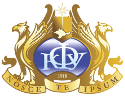This educational programme include the following competences:
- The ability to examinate a patient in order to establish a diagnosis and to solve professional tasks
- The ability to prescribe, monitor the effectiveness and safety of non-drug and drug treatment in solution of professional tasks
- The ability to organize the work of junior and middle medical staff for patient care
As a result of studying the subject, the student is to:
KNOW: basic morphofunctional, physiological states and pathological processes in the human body; basic principles of the diagnostic process, a scheme for examining a patient in a therapeutic clinic, standards for physical and basic laboratory and instrumental methods of examination, indications, contraindications and the mechanism of action of pharmacological drugs
BE ABLE TO: ask the patient and / or his relatives, analyze the results of basic laboratory and instrumental examinations, identify the leading pathological symptoms in the main diseases of the internal organs and prescribe, as well as monitor the effectiveness and safety of non-drug and drug treatment in certain clinical situations, organize the work of junior and middle nursing staff
HAVE SKILLS: skills in assessing the basic physiological conditions and pathological processes in the human body; skills to perform basic diagnostic and therapeutic measures to provide primary pre-medical health care in emergency and life-threatening conditions due to diseases of internal organs.
- Преподаватель: Victoria Fedoseeva
